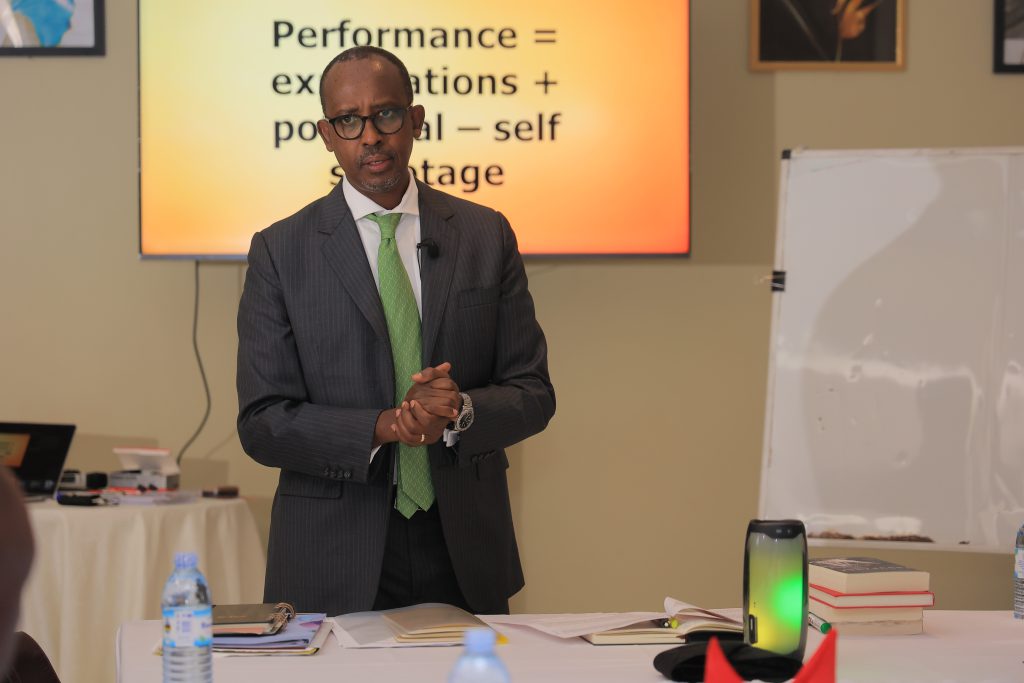
In a conversation with our Dennis Matanda, our good friend Odrek Rwabwogo pointed out that no one’s rights have been violated before and since the Anti-Homosexuality Act (AHA) was passed in 2023. Rwabwogo also affirms that a nation that pioneered the protection of minorities—including protections and rights for persons with disabilities (PWDs) and affirmative action for the girl child—cannot, at the same time, be intolerant or hostile to those of alternative sexuality. He also discusses Uganda’s regional and global trade aspirations and access to the power levers in Africa’s Great Lakes Region. Odrek Rwabwogo is Chairman of the Presidential Advisory Committee on Exports and Industrial Development (PACEID) and a special economic advisor to President Yoweri Museveni.
Odrek Rwabwogo was in Kampala, Uganda, for this interview, while Dennis Matanda was in Princeton, New Jersey.
Dennis Matanda (Dennis): It is lovely speaking with you again, Odrek.
Odrek Rwabwogo (Odrek): But of course, Dennis. Given the two decades we have known each other and worked together, this interview was always going to happen <Laughs>.
Dennis: That does not mean I will be kind to you <Laughs>!
Odrek: Well, don’t forget I know your mother … <Laughs>!
Dennis: On that note, you win <Laughs>, and I want to depart from your most recent interviews to ask an important question: What keeps you up at night nowadays, apart, of course, from the fallout with some in the West following the Uganda parliament passing the Anti-Homosexuality Act (AHA) in May this year.
Odrek: We need to talk about AHA in proper context, and let me come back to that grave point subsequently. But what keeps me up at night is this: I think of a country that, um, is so young. Seventy percent of the population is below 30 [years old]. All the planning from our cities: water resources, distribution, roads, railways – all were done for a much smaller population, but also done without thinking of what would happen in ten, thirty, or sixty years. So, suppose you consider that the road infrastructure in [Kampala] was planned for 50,000 people in the 1950s. In that case, you have a real challenge stemming from the fact that Uganda’s population has increased [exponentially] with a significant number of those coming to the city for work and opportunity. Hence, if you think of 2062 [when Uganda shall have been an independent country for a century], the population is much [larger] than we have today. What kind of country shall we have? I think of young people—my children, your children—and [grapple] with issues of the economy, stability, climate change, of whether Uganda can remain politically and economically stable, growing and effectively compete with the Japanese or the Chinese of this world. As I did during the COVID-19 lockdown, I took our youngest children and their cousins to plant trees with a silver mark-stone that says, “The world in 2070”. Like me, I wanted them to visualize their actions today and how much these actions will mean for their world when they come of age.
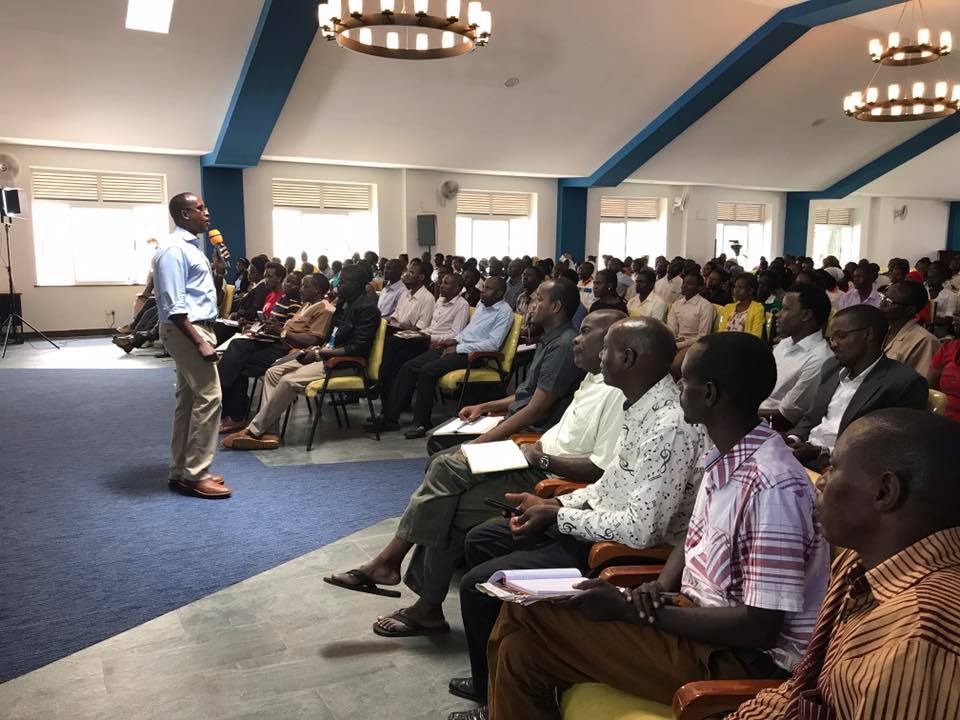
Dennis: Aren’t you placing a little too much on yourself?
Odrek: Well – <Laughs> I also have questions on leadership, institutional growth, and questions of capacity in, uh, in education, in technology, in many, many other areas that keep nations growing and providing for the next generation.
Dennis: But Odrek: What can you, in your capacity as Chairman of the Presidential Advisory Committee on Exports and Industrial Development, do in a liberal democracy that has entrepreneurs and the private sector? Don’t you just coordinate without control?
Odrek: No. We don’t just coordinate. The longer answer lies in the difference between structure and agency. And in a liberal democracy where politics tends to trump economic activity and other things, no one grows an institution without disrupting the way things are done. When you fix those things, you have a sense of agency. And when you alter the structure, you are no longer just coordinating; you are laying a firm foundation for irreversible social and economic change.
Secondly, I understand that the templates we have used since independence are what the British left with us. Titles of government officials and the ‘pecking’ order. The education system. Our work as a committee is important because we touch on the economy’s structural weaknesses. We work on reforming these institutions with new thoughts, ideas, and actions. We deal with the certification of exports to make them more competitive. We must take these Ugandan exports and making them more competitive in Europe, for example, against a leading competitor there – Spain. But before this, our [sanitary and phyto-sanitary] laboratories and transportation systems must work, and everything must be enforced so we can deal with structural weaknesses that impede our progress. In the same vein, Uganda has some of the highest interest rates in the world. At 21 percent, these rates hobble many Ugandan enterprises from doing business, expanding, much less, exporting. So, we have had to develop innovative low-cost export underwriting funds for those firms that have orders and don’t have working capital. Where research is so expensive, we must raise low-cost money and invest it in young people’s businesses, helping them get jobs and earn an income.
Dennis: But why is this the responsibility of a presidential committee? Shouldn’t this go to a ministry or something?
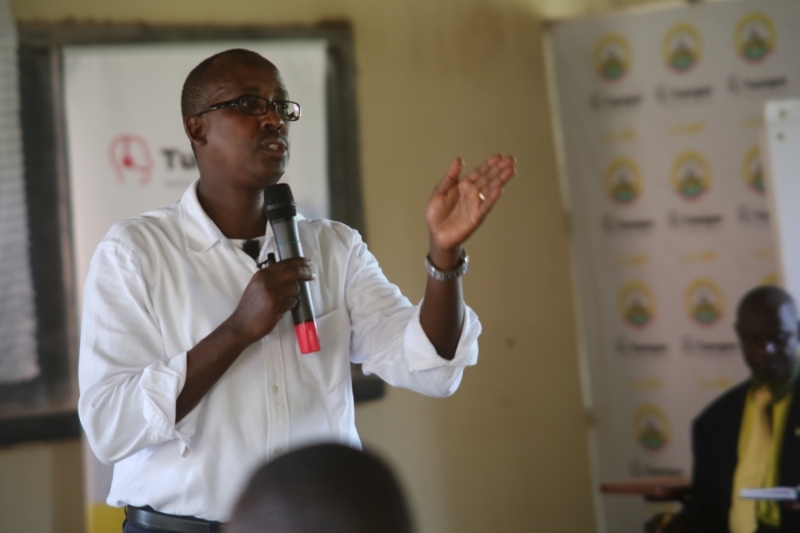
Odrek: While all this might sound simple for a developed economy, Uganda’s challenges are inherently structural. And that is what the Committee must focus. For instance, we must engage with an online entrepreneurial society that apparently knows what is happening in Singapore and America, given that our people are young and aspirational. We must, therefore, provide more structure and education – the kind of education or instruction that exposes them to regional and global markets and research. In the process, we should also open several [non-traditional] markets on their behalf.
Dennis: But given these twenty years we have been friends, can you convince me that your efforts in this new capacity will generate the enormous impact you aspire for?
Odrek: Dennis, as you and I know, we in the private sector can only sell food to other people if we know how those customers see and consume the food we want to sell them. With my private sector experience, I know to take my bananas to Thailand with a full appreciation of how the Thai people eat bananas. They may have bananas like me, but how they eat and cook the bananas is different, creating a niche for me as a private sector person. Interestingly, that is the same niche I have in the government. Because I come from a private sector background, my experiences have prepared me for public service. Also, given the fundamental lessons I learned while at school in Cardiff, I know the difference between having a degree and knowing what to do. One key lesson was that it is not my resume that makes me important but what I am applying myself to. Therefore, under this committee, I also leverage my long-standing experience of dealing with various audiences and communicating with multiple audiences and types of people. When you bring that experience to government institutions, you infuse the word ‘delivery’ into institutions where people have not seen [much change]. In this case, I stand at the intersection of the public and private sectors to inculcate change. These are critical areas within which I am working: creating awareness on dealing with markets differently and especially being intentional about going to new and old markets in a different and special way.
Dennis: I’m sorry to interrupt, but from that perspective, aren’t you doing a top-down procedure instead of letting the market decide?
Odrek: You must use the top-down method because you create institutions and an ecosystem where only a handful of approaches and systems exist. At the same time, you’re reforming or modernizing older approaches so that they can do optimal service delivery for this and the next generation. It takes about three generations to create and maintain an approach to things, whether marriage, wealth, institutions, or even structural change efforts. At the same time, you must provide a bottom-up approach that produces development models that provide public resources at the parish level for piggery or chicken projects. We are working with the Department of Industrial Training, for example, to certify nonacademic skill sets for young people so they can participate in this export drive. That is bottom-up combined with top-down!
Dennis: Which then brings me to something you said, uh, earlier, the aspects around governance and leadership. How do you deal with people who are skeptical about the fact that you’re the president’s son-in-law?
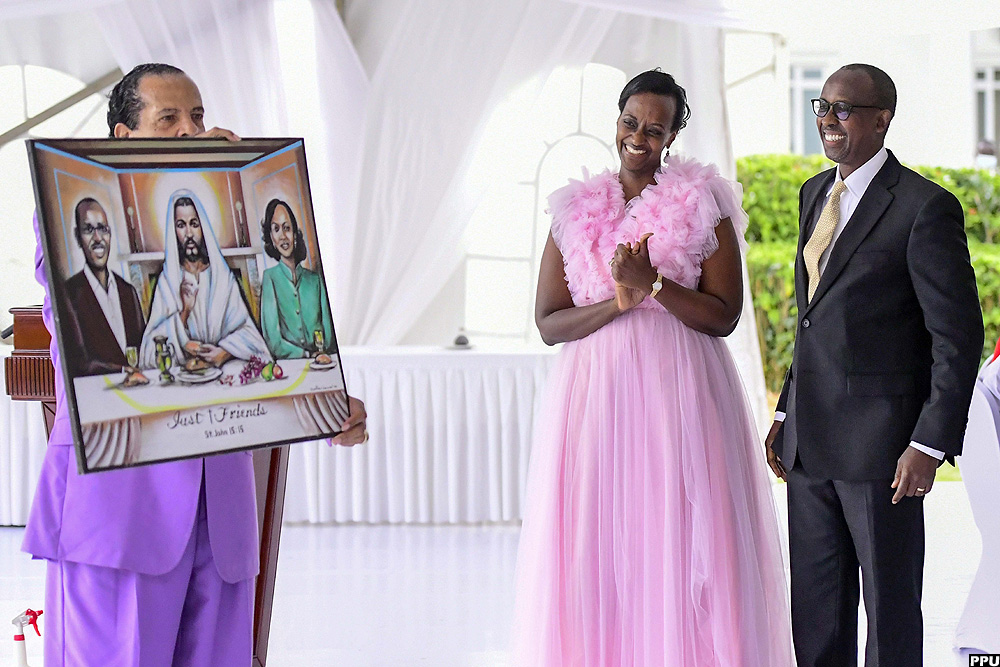
Odrek: You will be surprised to learn that being the president’s son-in-law often creates stumbling blocks for me. Instead of people looking at me for my skill, content, character, or what I can do, some have focused on who I decided to fall in love with and marry. We all come from somewhere and are married to someone from elsewhere, and none of us can genuinely determine who becomes their father or mother. And when I was younger, I let this ‘son-in-law’ stuff bother me. But as I have grown older, I have realized that the world is what it is, and I am who I am. I must fulfill the purpose for which I was put on this earth. At the end of the day, I firmly believe that despite the noise and gray areas, people will remember that there was once a problem, and a person like me turned it into an opportunity that benefited most people. And as you may know, those so-called relationships [with essential or powerful people] are not bad if you use them to help people. Simply, I am going to make changes because I want to be held accountable at a personal level. And I’ll use both structure and agency to achieve results.
Dennis: Thank you for this candid answer. This brings me to a fundamental question: What is Africa’s problem today?
Odrek: Rootlessness.
Dennis: Could you care to unpack this big concept of rootlessness?
Odrek: First, how can Africa be united if we’re not able to speak to each other or put language and meaning to the things that matter to Africa’s young people, whether this is education or being able to travel across borders with excessive difficulty? Why is it easier to get a travel visa to Europe than to travel to South Africa? I find this strange. So, that’s why I call [Africa’s problem] ‘rootlessness’ or the idea that you have no ground you call yours in decision making, and you have to apply the lenses or take the opinion of those who don’t wish you well; other people – whether this be culture, language, food, et cetera? This is the source of the lack of confidence you often see today in our continent’s public and private sectors. We can reverse this through trade and education of our people.
Dennis: From that perspective, how does Odrek Rwabwogo understand the African Continental Free Trade Area (AfCFTA) and how it can work for Ugandans, East Africans, COMESA, and the Great Lakes Region?
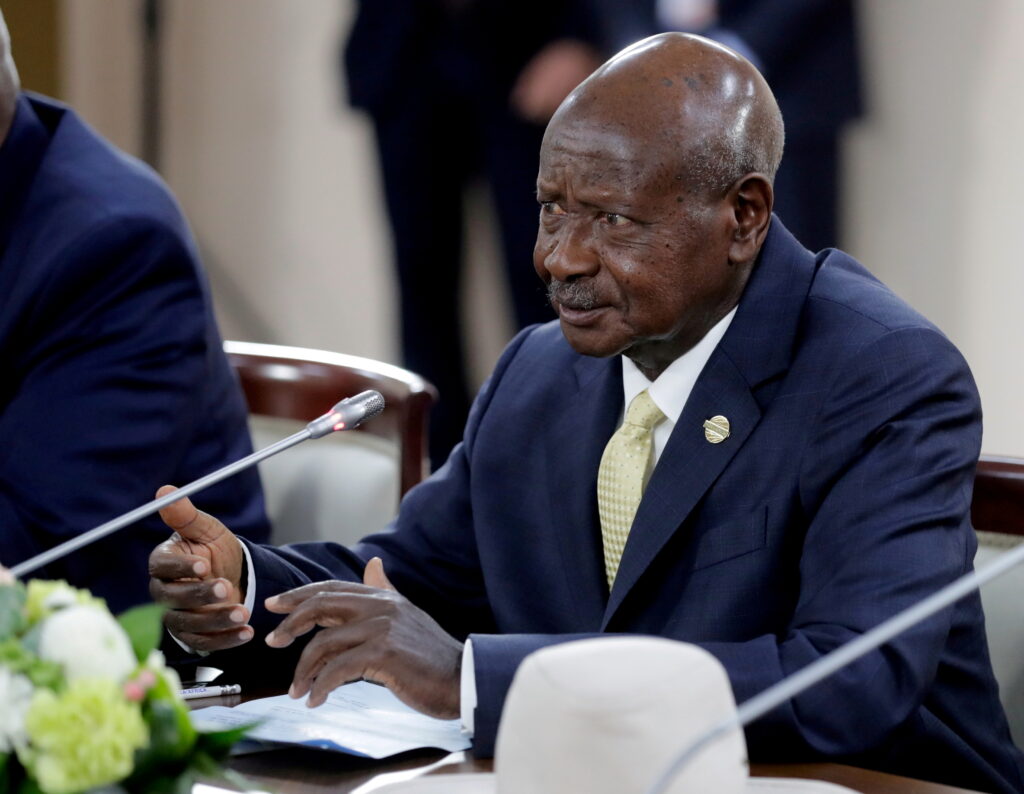
Odrek: For me, if we match our words and text with actions, this AfCFTA construct can become a potent tool because trade is a tool that unites and fits Africa like a hand in a glove. We have been trading with the rest of the world for a long time, but we have yet to figure out how to trade with each other. For instance, we found that 2,500 years ago, southern millet and sorghum seeds may have gone across the ocean from western Kenya and eastern Uganda to India. An archeological site in Gorji, Gujarat, recently proved this. Trading, not wind or birds, carried these seeds across the sea. The AfCFTA affords us an opportunity, as countries, to learn to speak to each other, to remove visas, and to open our skies so that our aircraft can fly without fees into each other’s territories and lower ticket costs for everyday Africans. Why should a ticket from Entebbe to Lagos cost twice as much as one from Rome to Paris? And eventually, if we keep this momentum, it will produce a leadership [cadre] that cares about stability and thinks twice about how they communicate with each other and lessen conflicts. This will improve diplomacy between our nations.
Secondly, when you think of grains, fruits, and vegetables, countries like Uganda have some of the most enormous pineapples in the world. Juicy testing fruit that, due to their size, might not easily fit in the global supply chains. But Kenyans and Congolese, like us, eat these pineapples, giant or not. Therefore, we should incentivize people in Masaka, Uganda, to produce for a neighborhood market where non-tariff barriers have been removed or lessened by AfCTA. This food also exports our cultural content because culture is food, language, art, and entertainment. If you want to unite people groups, help them trade with each other because that creates deeper meaning at a very elemental level for our societies. Those who deal with each other tend to have less appetite to engage in destructive wars.
Dennis: And you could connect this to more advanced products?
Odrek: You can apply the same principle to the Fourth Industrial Revolution, where Africa is weak. And we can make the same leap as we made from telephone landlines to mobile technology and now data. Look at Africa’s FinTech, and you’ll see that we have grown faster than many parts of the world. We have a continent with good weather and young people. But of course, we must strengthen education systems and encourage people to do national technical and tertiary education. A recent McKinsey report suggests that for Africa to be competitive, it needs to build 25 universities the size of Harvard for the next 50 years. Now, that gives you the magnitude of the problem – but equally, the opportunity in online education and digitizing our systems and processes. So, we will get to the Fourth Industrial Revolution easier than the West and East because we have the best of both worlds.
Dennis: Speaking of the ‘best of both worlds,’ I guess this is the best place to talk about the complexity, delicate nature, or rootlessness of the anti-homosexual nature inherent to the Ugandan populace. How would you want other people to see Uganda?
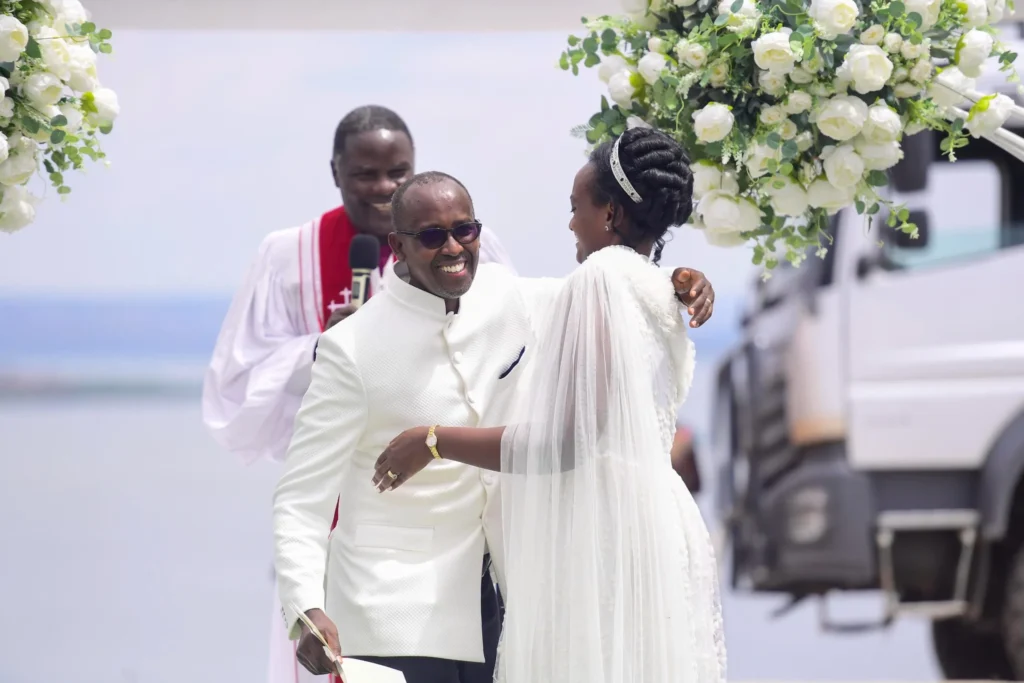
Odrek: I think people need to understand that the country that boosted, lifted, and freed scores of disadvantaged people in our society should not be painted with one brush as homophobic. Uganda was one of the first countries to promote affirmative action for women at the University and universal education for the girl child. At the same time, the Ugandan government invested significant resources in providing for disabled people, the elderly—pensioners—and other vulnerable members of society. From that perspective, people of alternative sexuality fit into a specific category of vulnerable people, and our liberal democratic society does not penalize the vulnerable.
Dennis: So why pass such a draconian law to address such novel goals?
Odrek: What may be called ‘draconian’ may also be commonsense legislation not adequately covered in our laws. This law was passed by parliament on two levels: First, as an avenue to protect children from the onslaught of school curricula that was forcing these elementary children to make decisions on their sexuality before they were of age. And the second level was on aggravated rape. Whether heterosexuals or homosexuals commit this, additional guardrails were needed for vulnerable boys and girls who may have assumed they were safe with those of the same sex.
Dennis: I hear you say ‘we’ and ‘the Uganda parliament’ and hear your pain in being misunderstood.
Odrek: The issue for me is that we did not provide the rest of the world with our explanation of things. And in the process, our trading and development partners have been drawn to this negative perception. But whether before or after the law was passed, those who don’t live in Uganda need to know that AHA has not been applied negatively to any of our citizens or foreigners who live among us. AHA was simply a shot across the bow, signaling that we intend to protect particularly precious lives. We are not against people because of their gender or sexual orientation. Our country has lifted not just gender but all other parts of society. It’s a contradiction when you do those two things, uh, I mean, you can’t be a country that protects human rights and pulls up disadvantaged people and then be taken as homophobic at the same time. It’s a contradiction.
Dennis: Mr. Rwabwogo, thank you for your time.
Odrek: My pleasure, Dr. Matanda.
